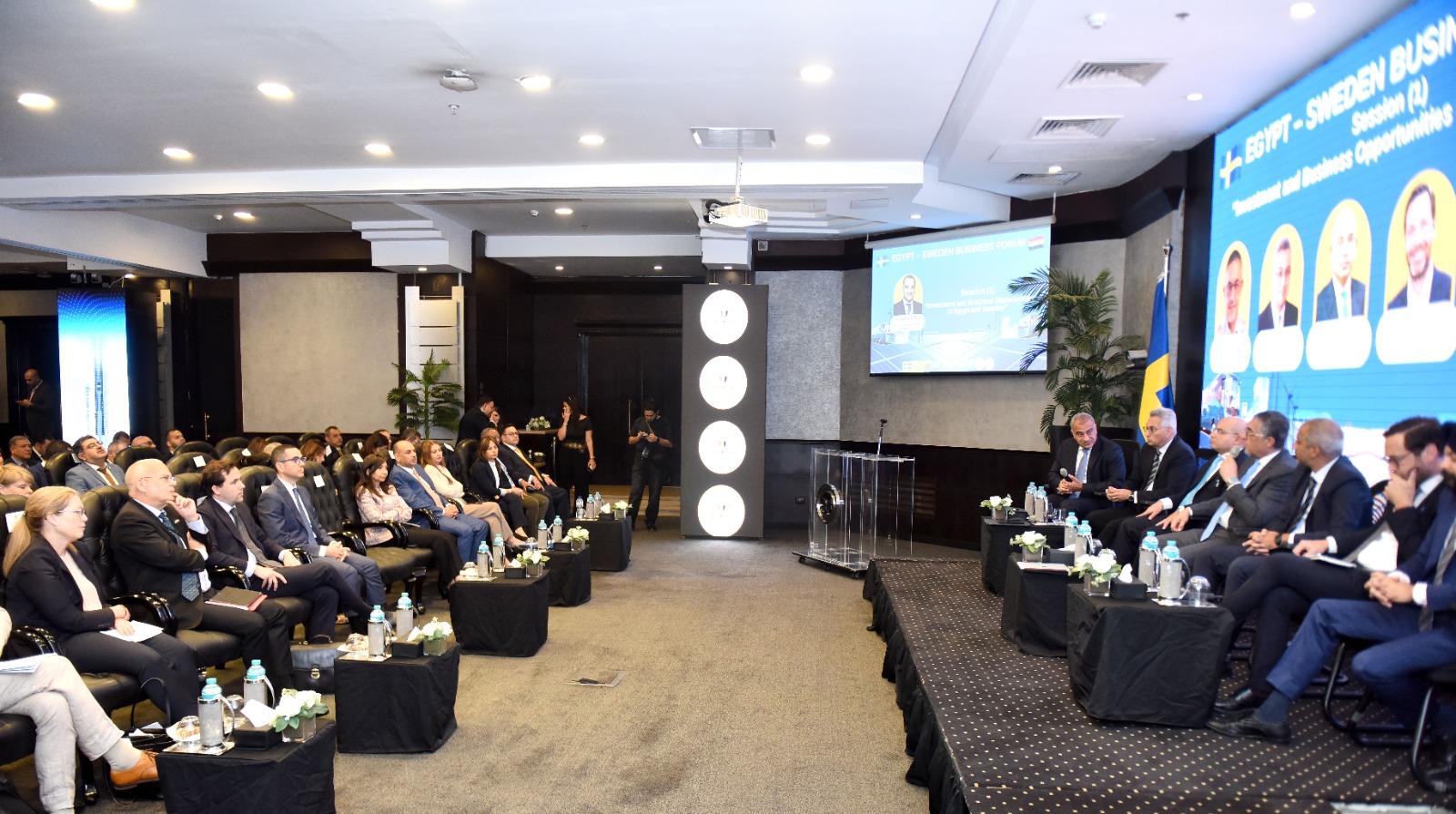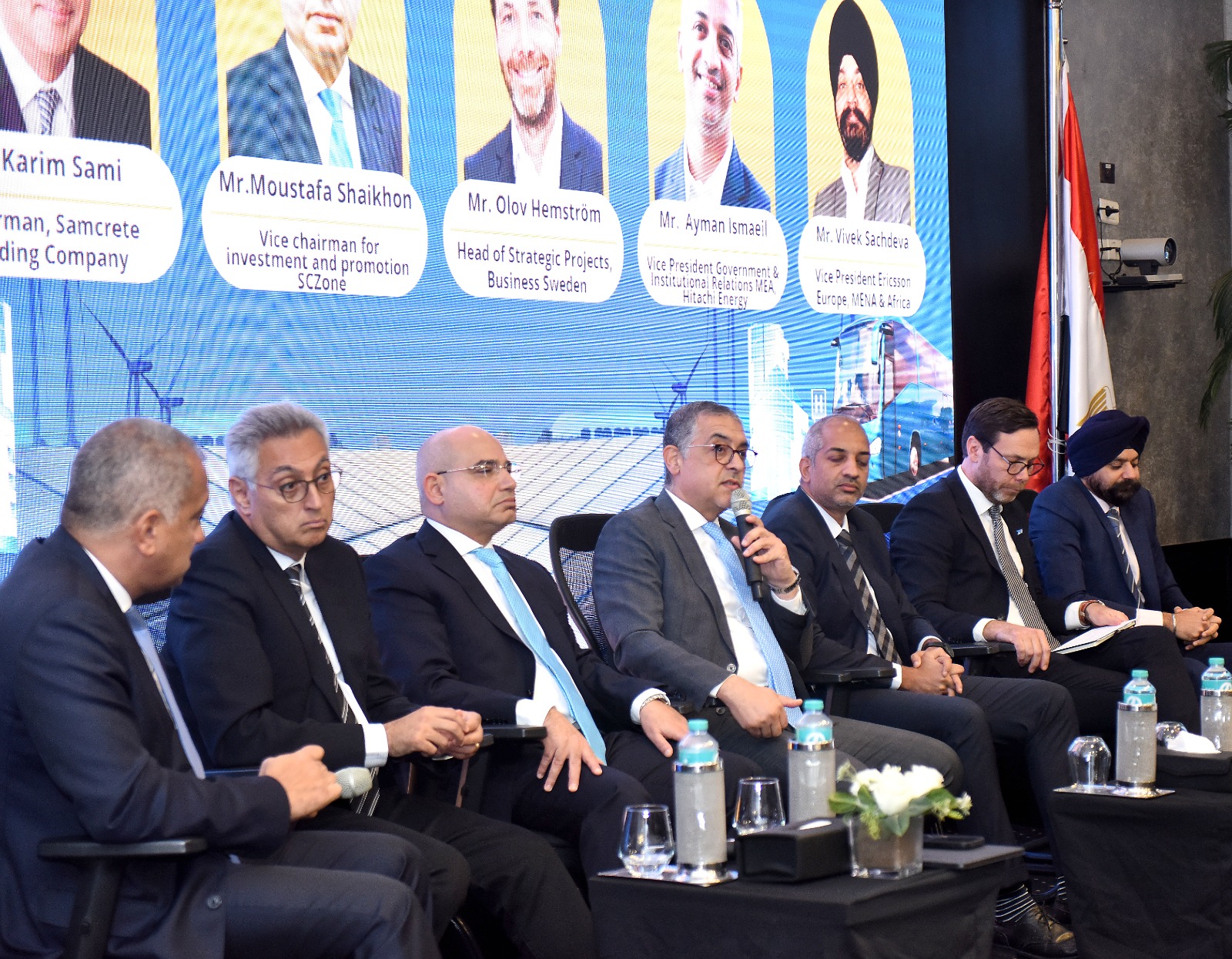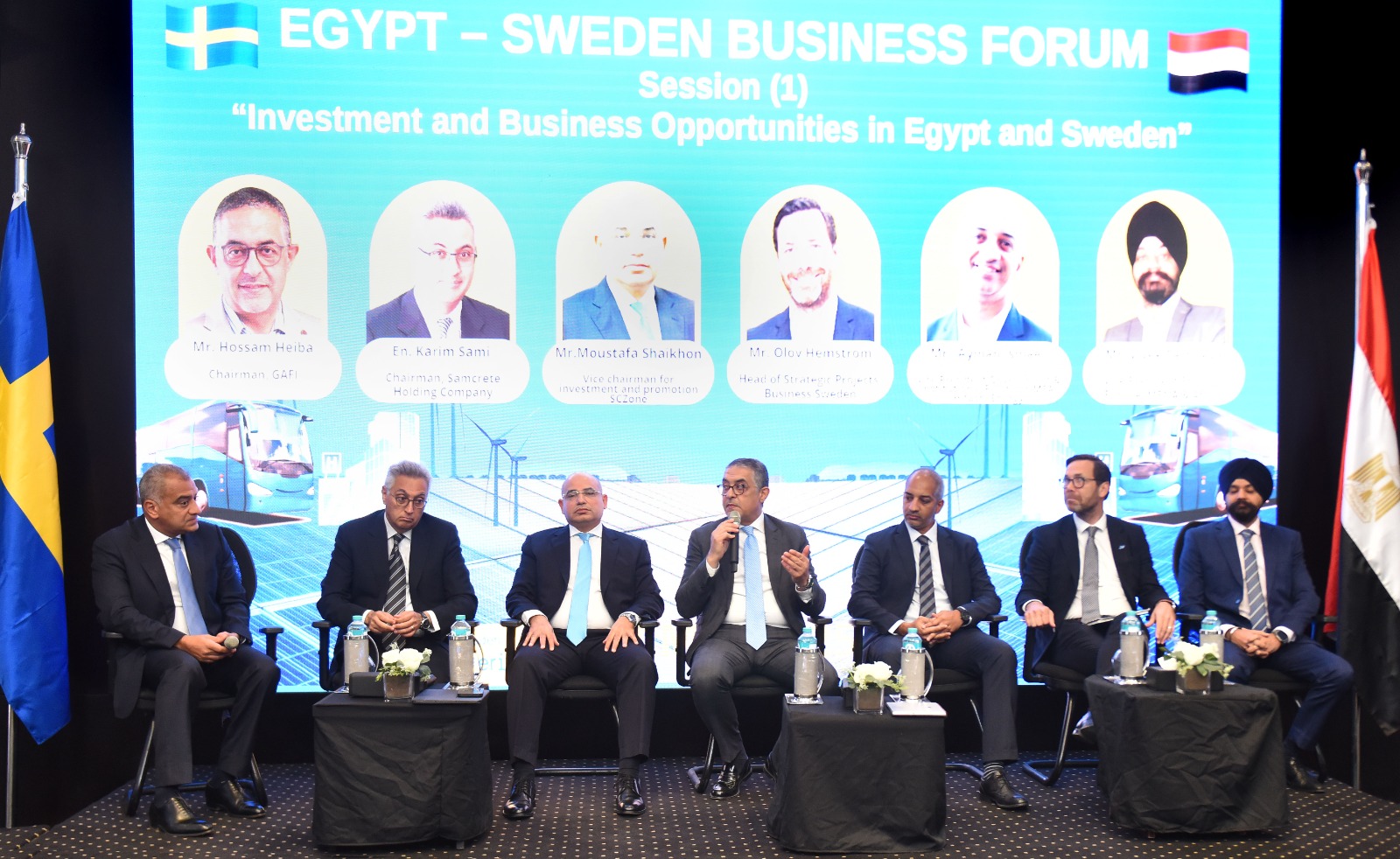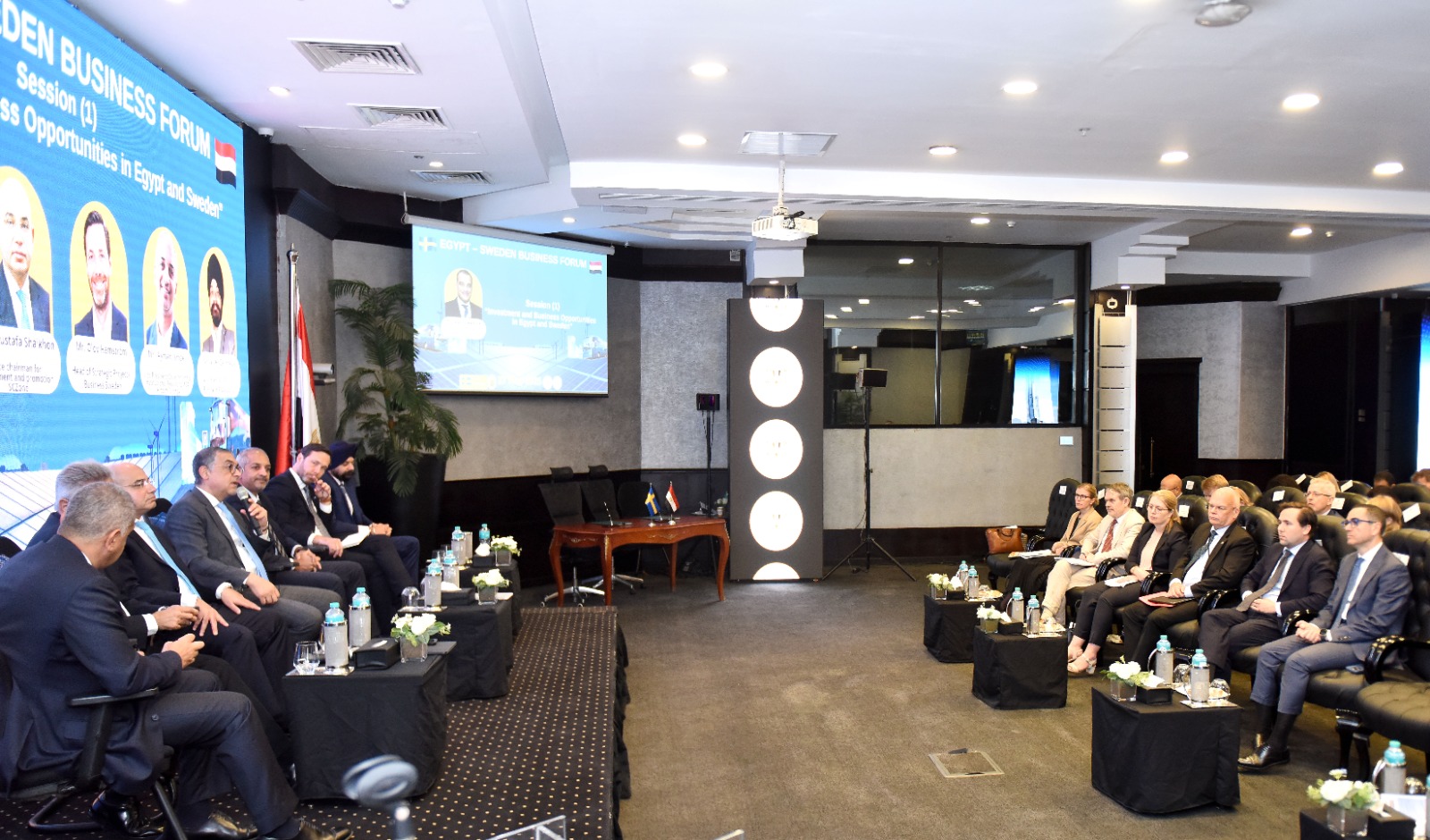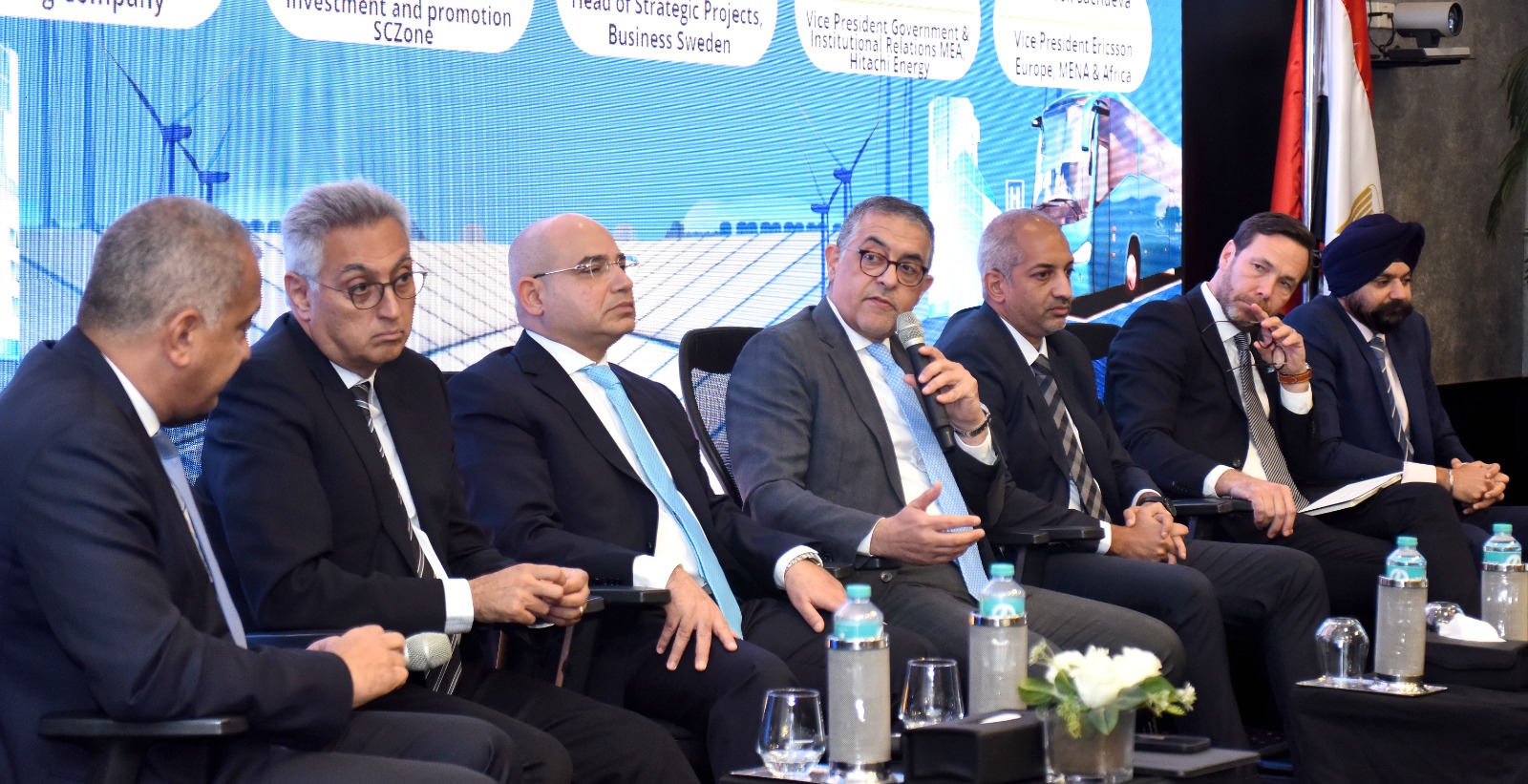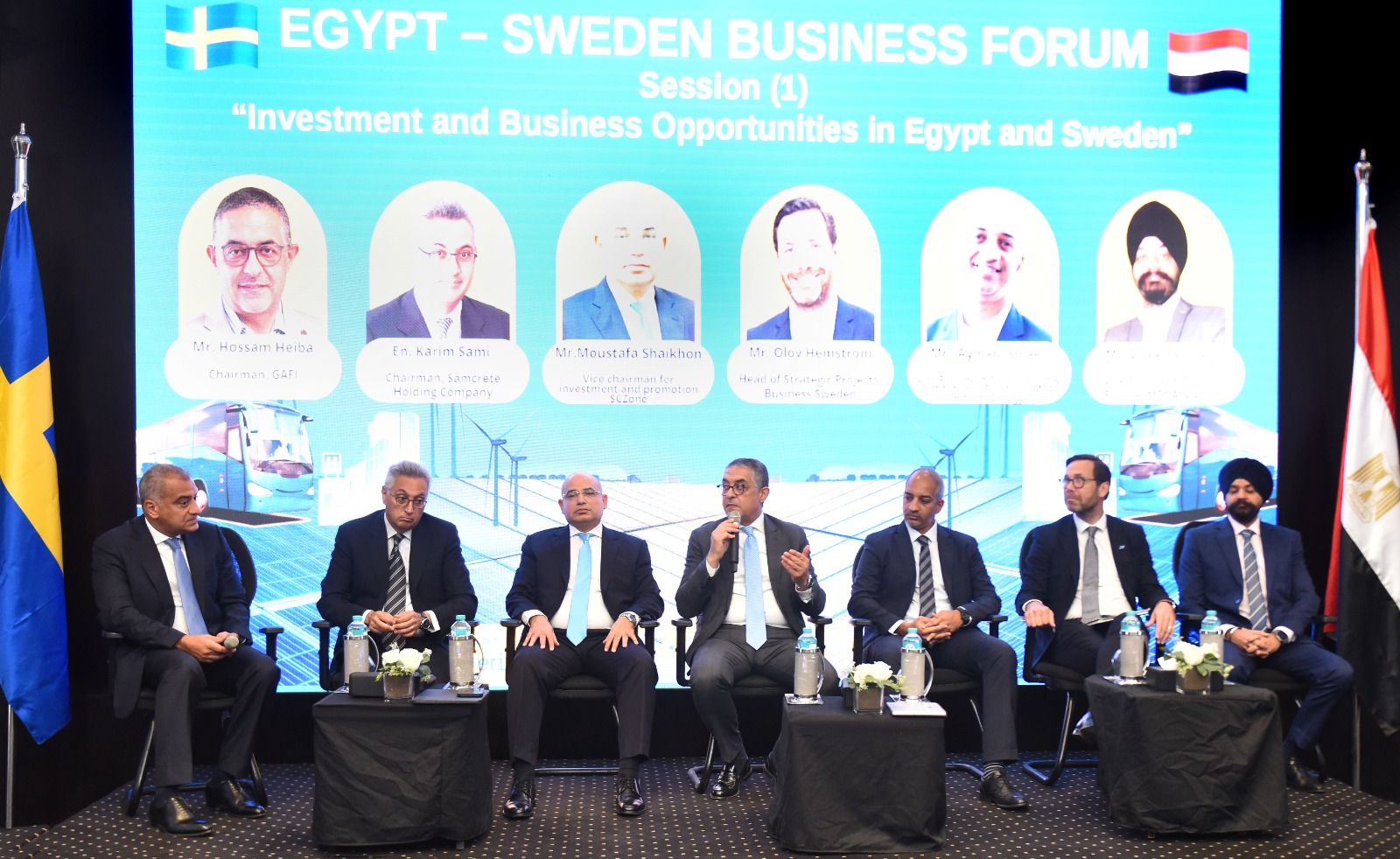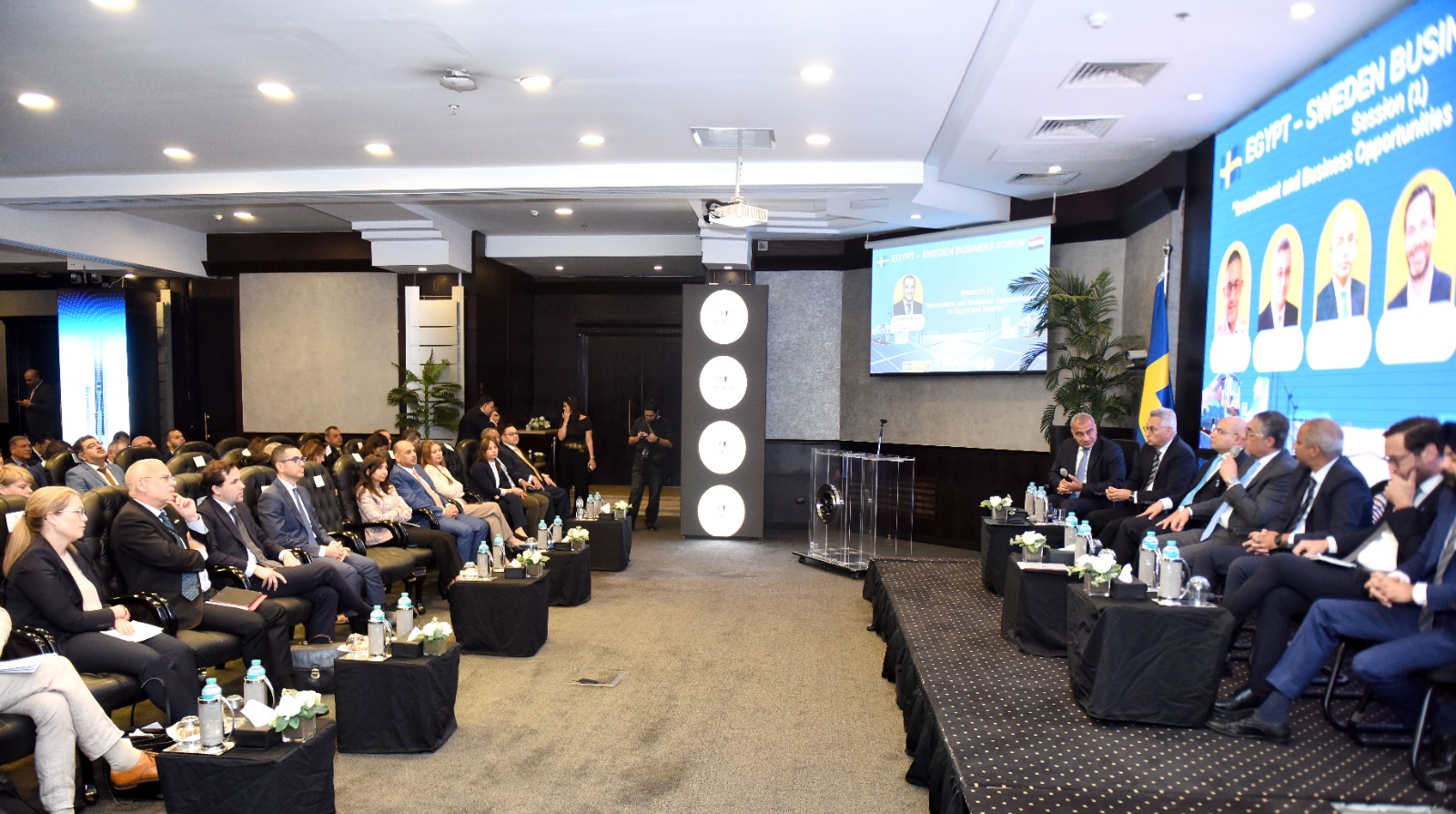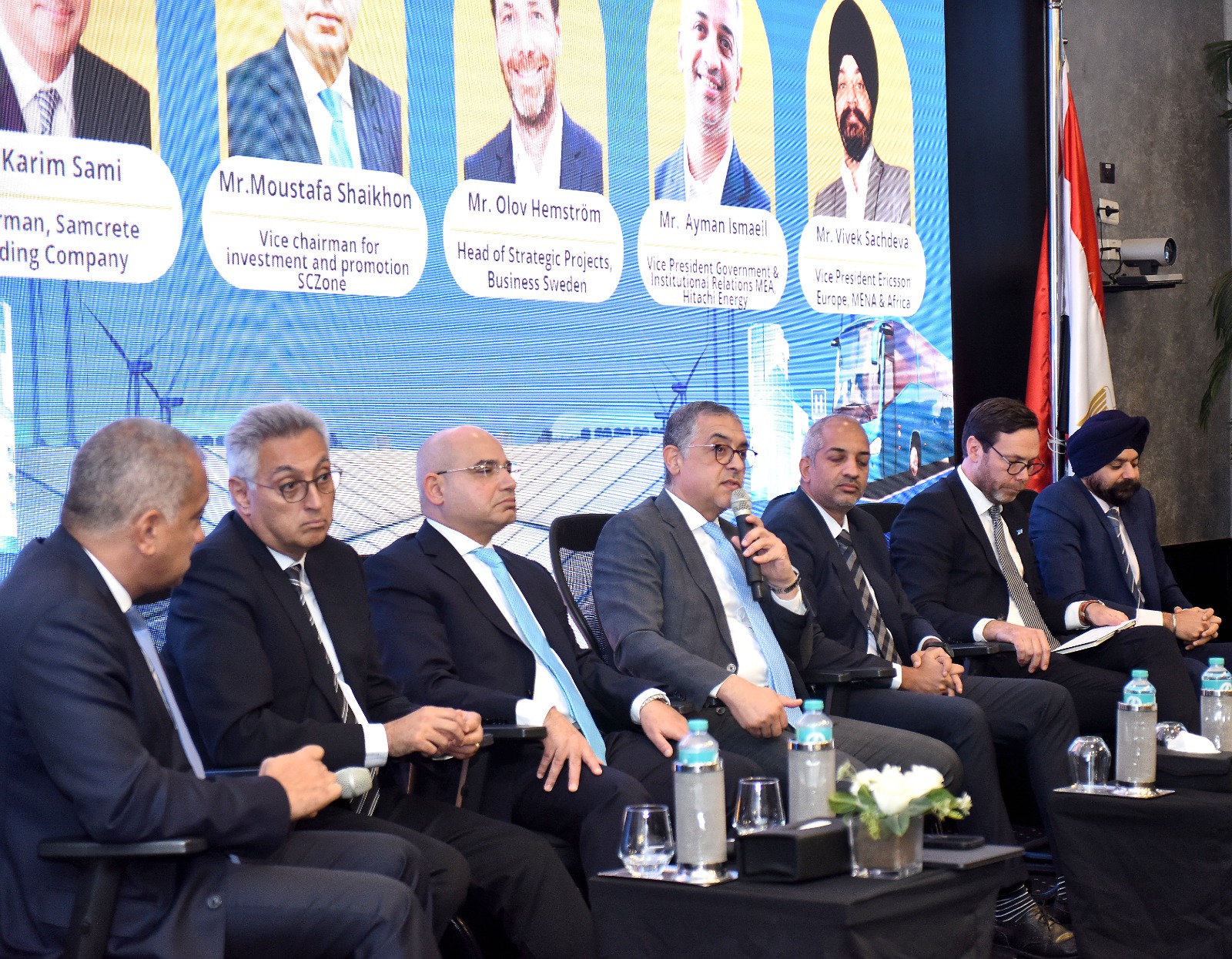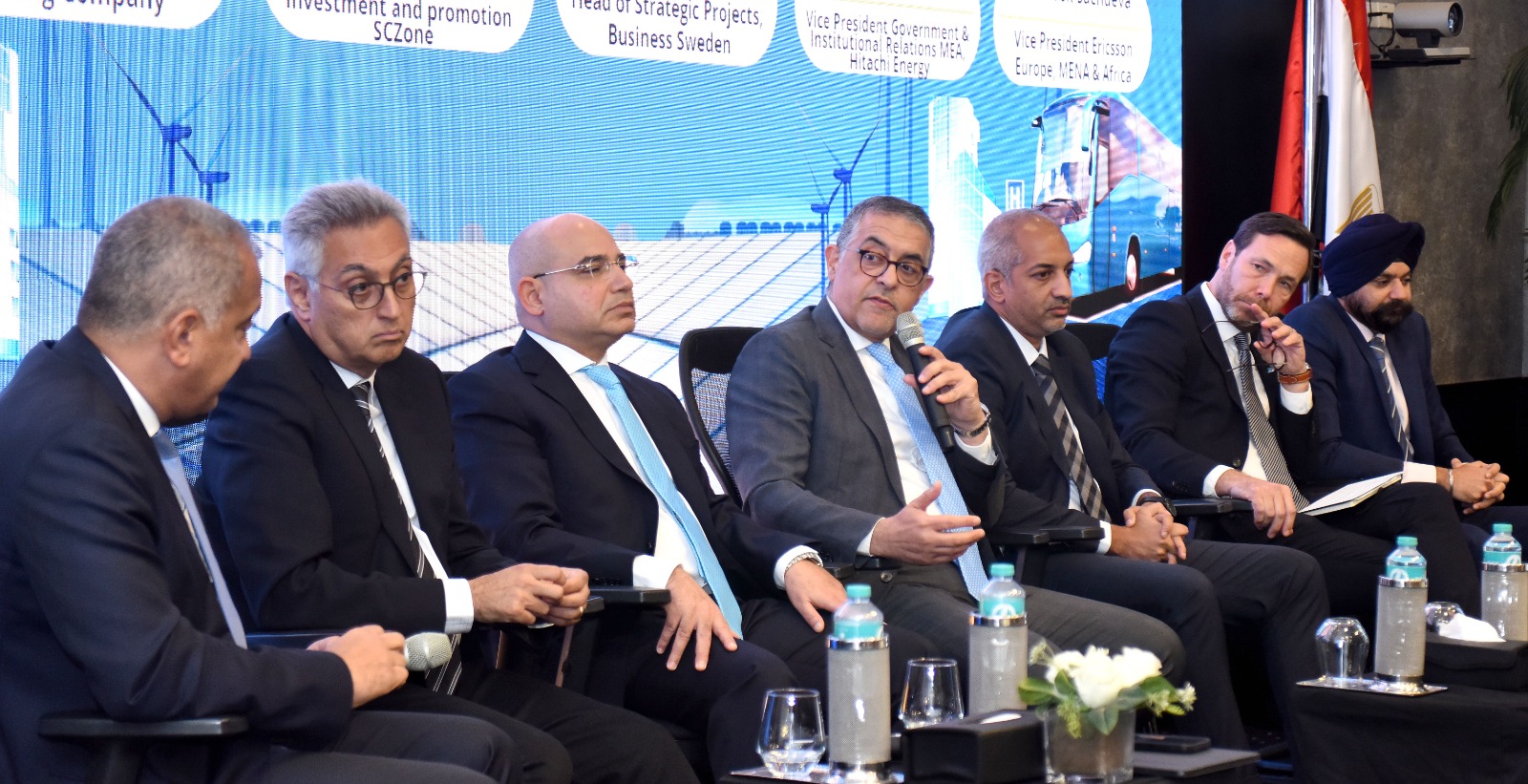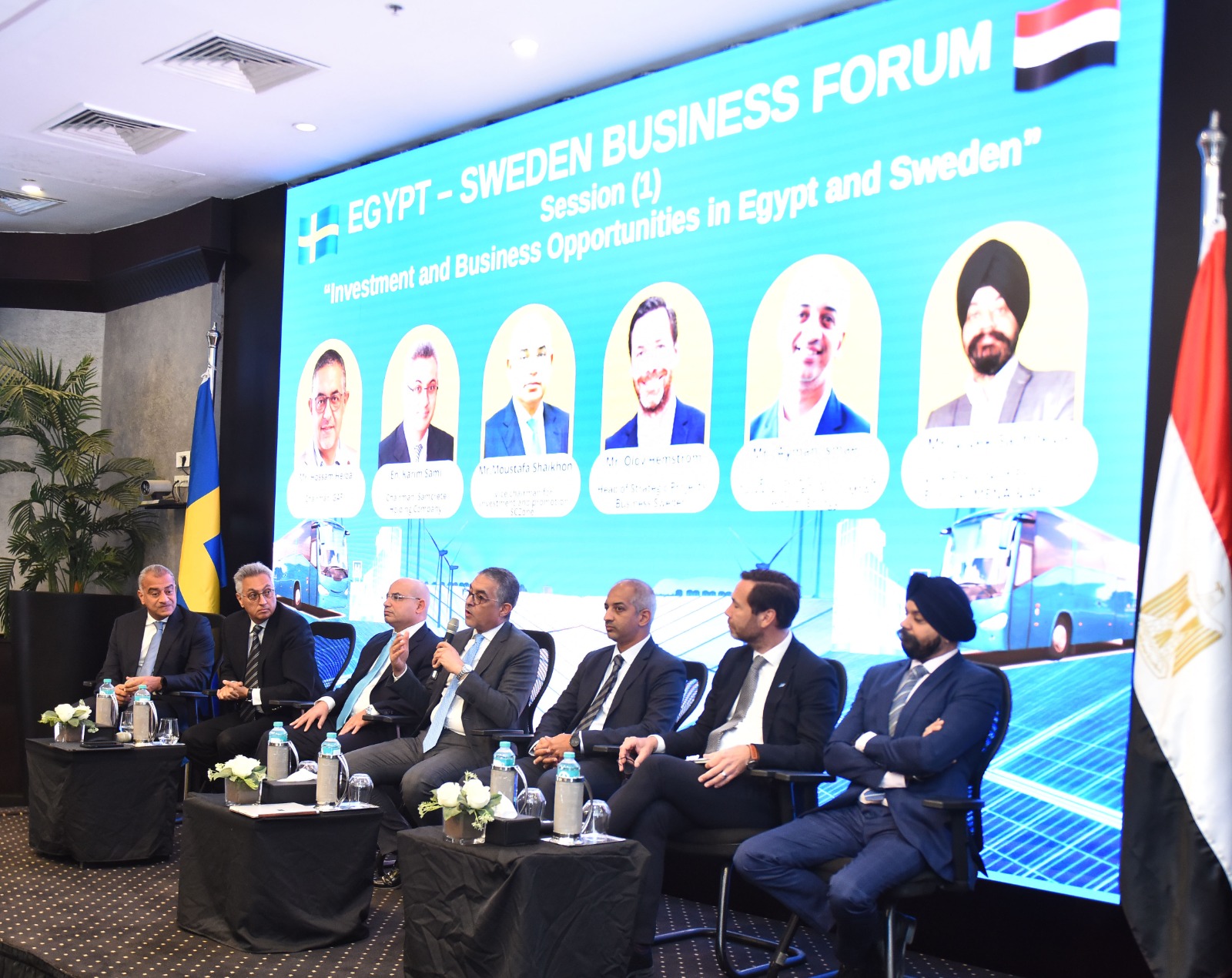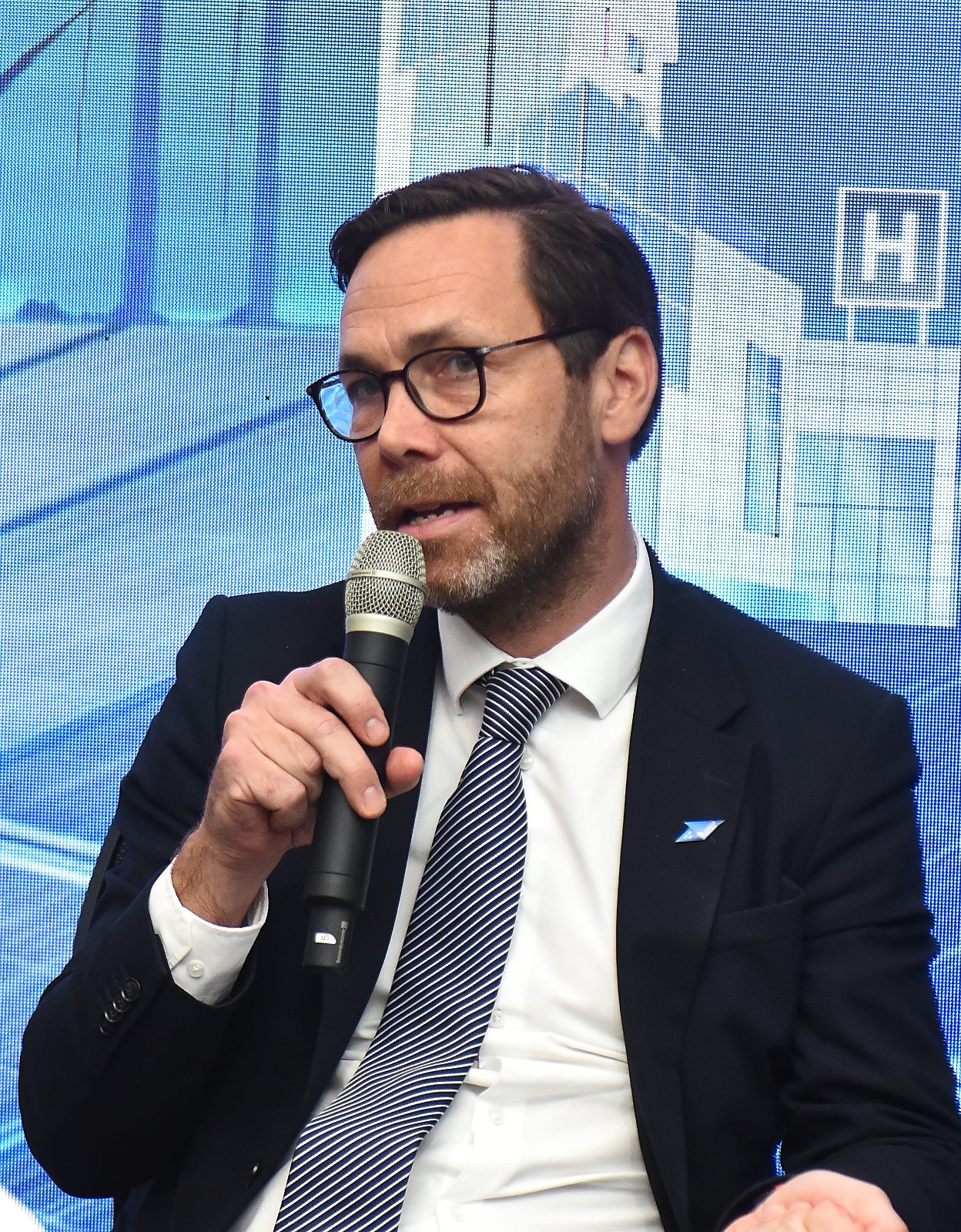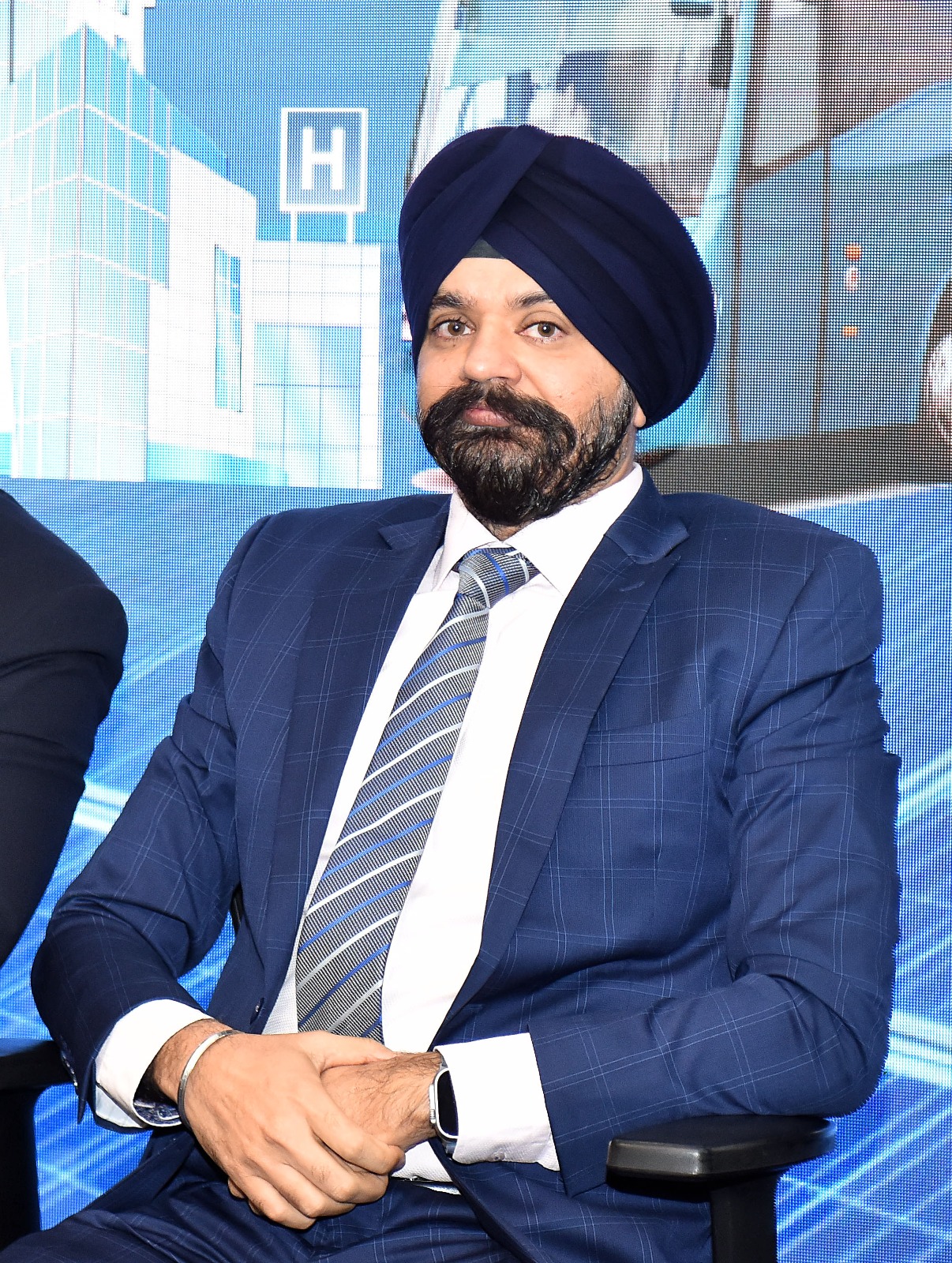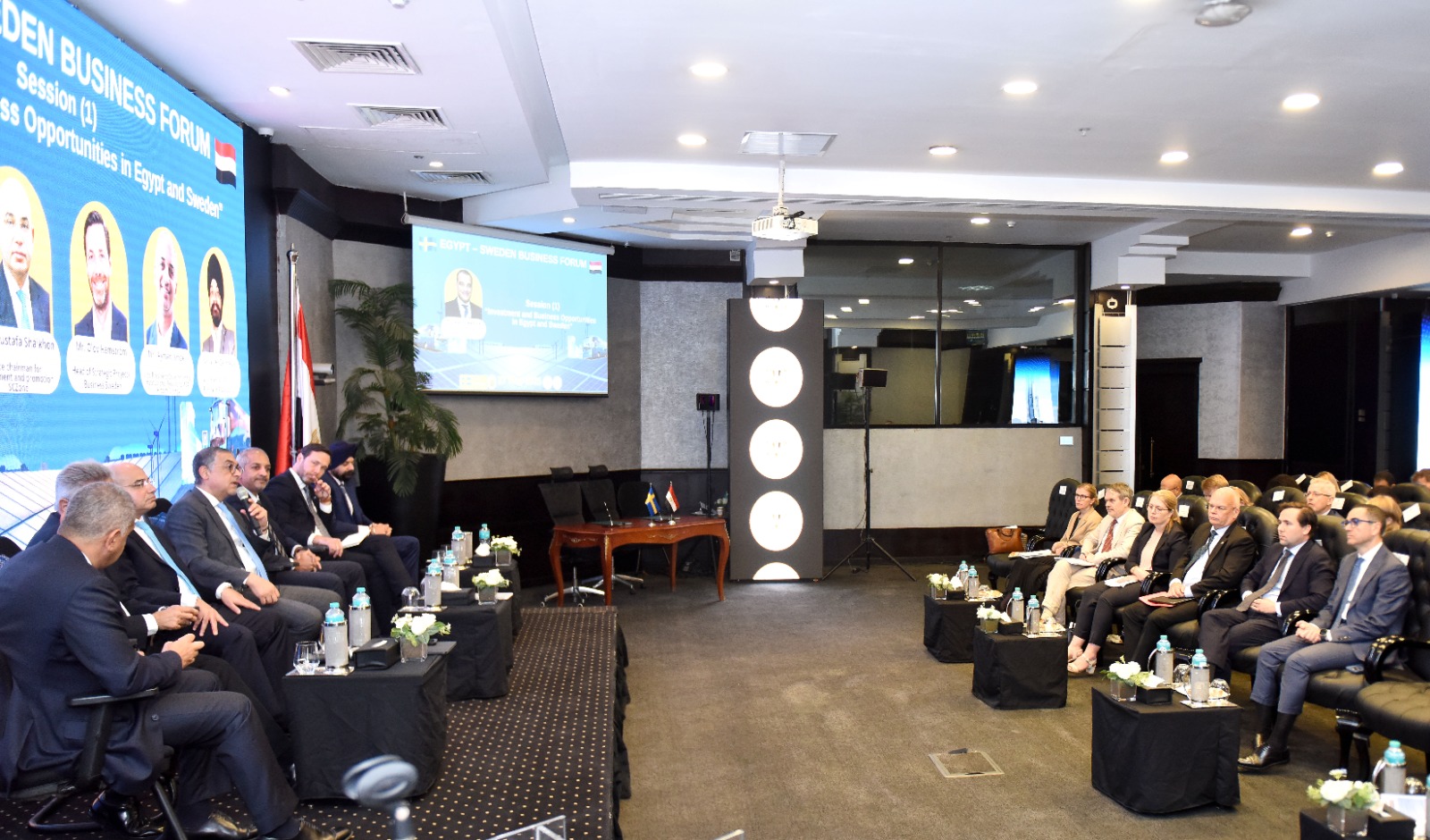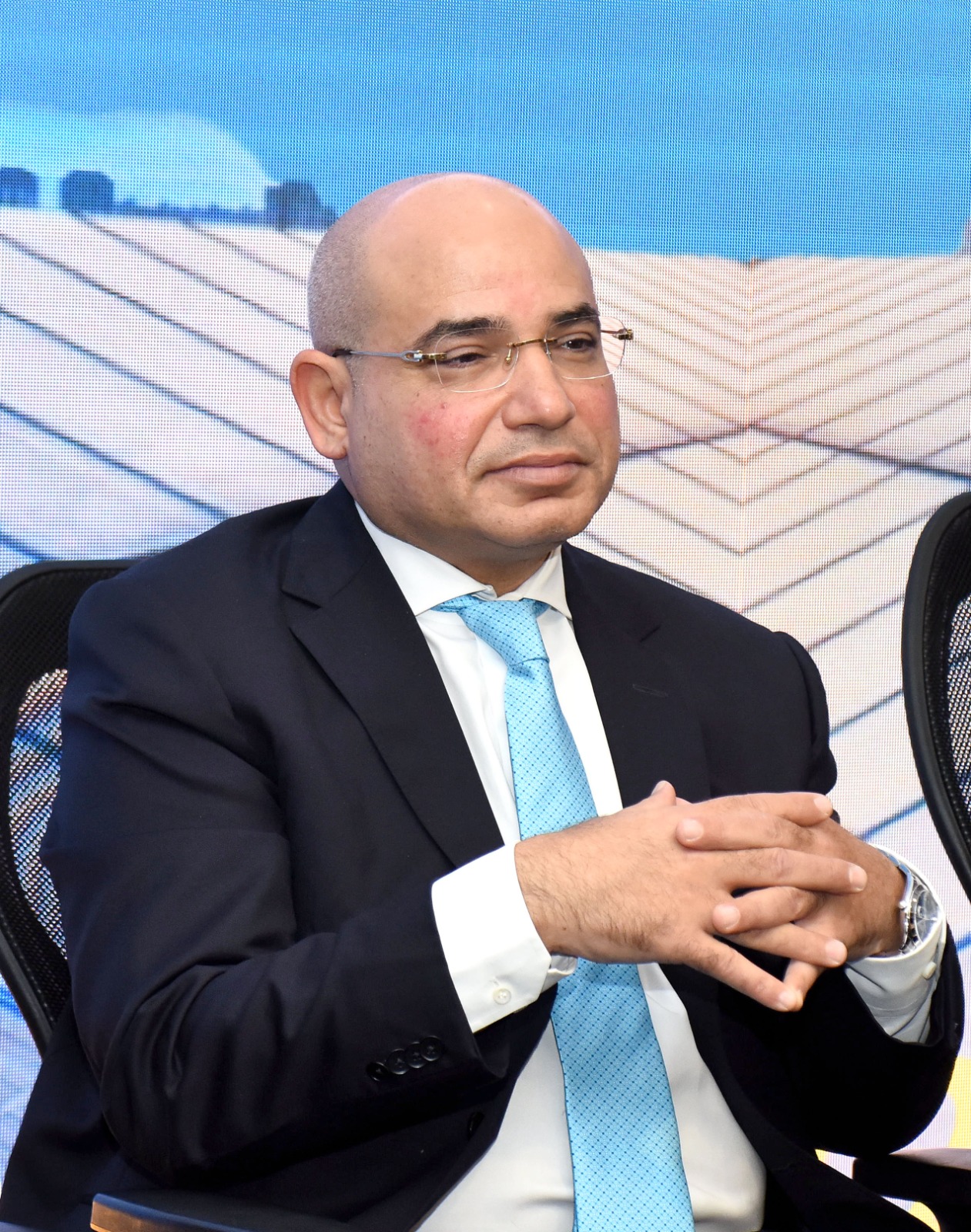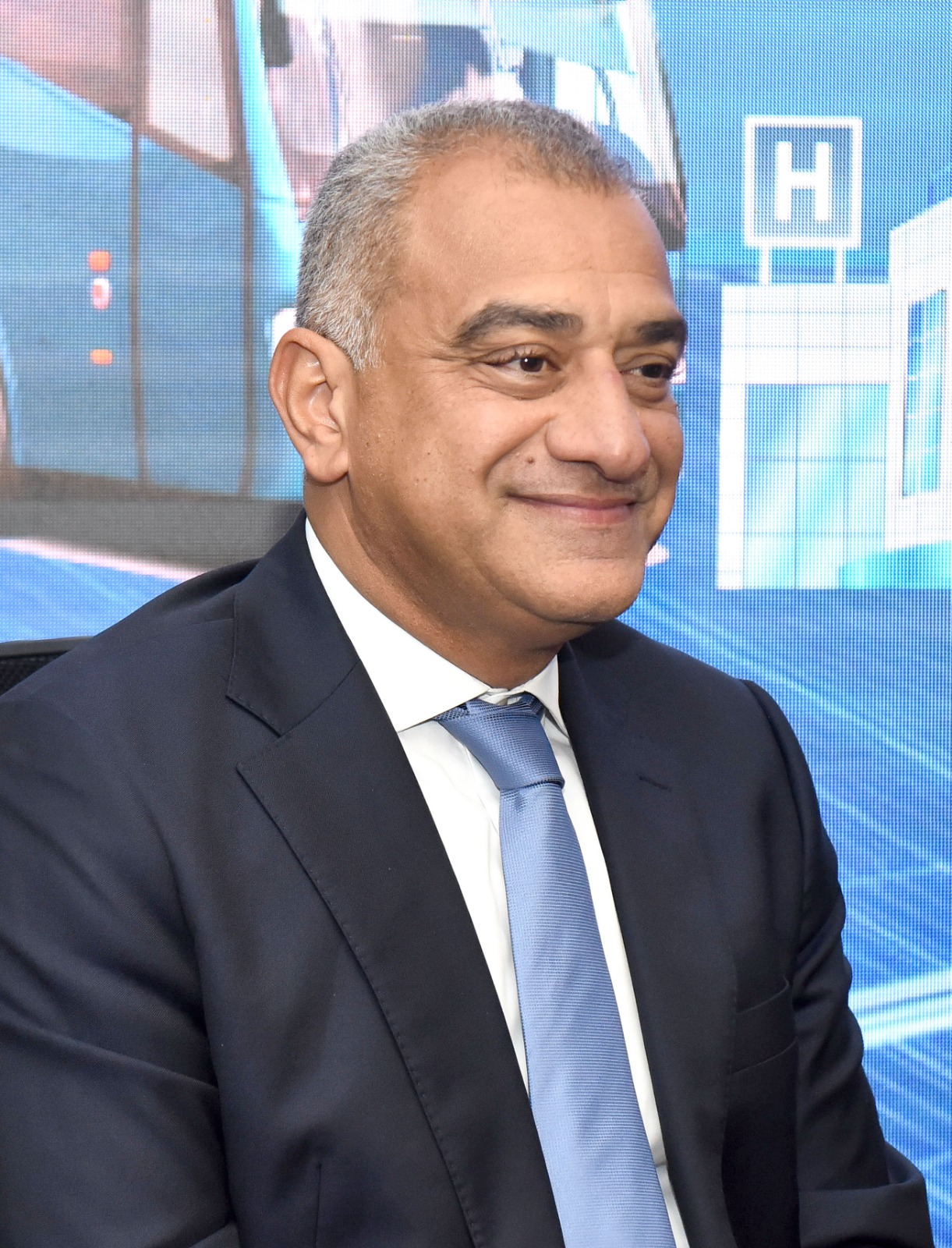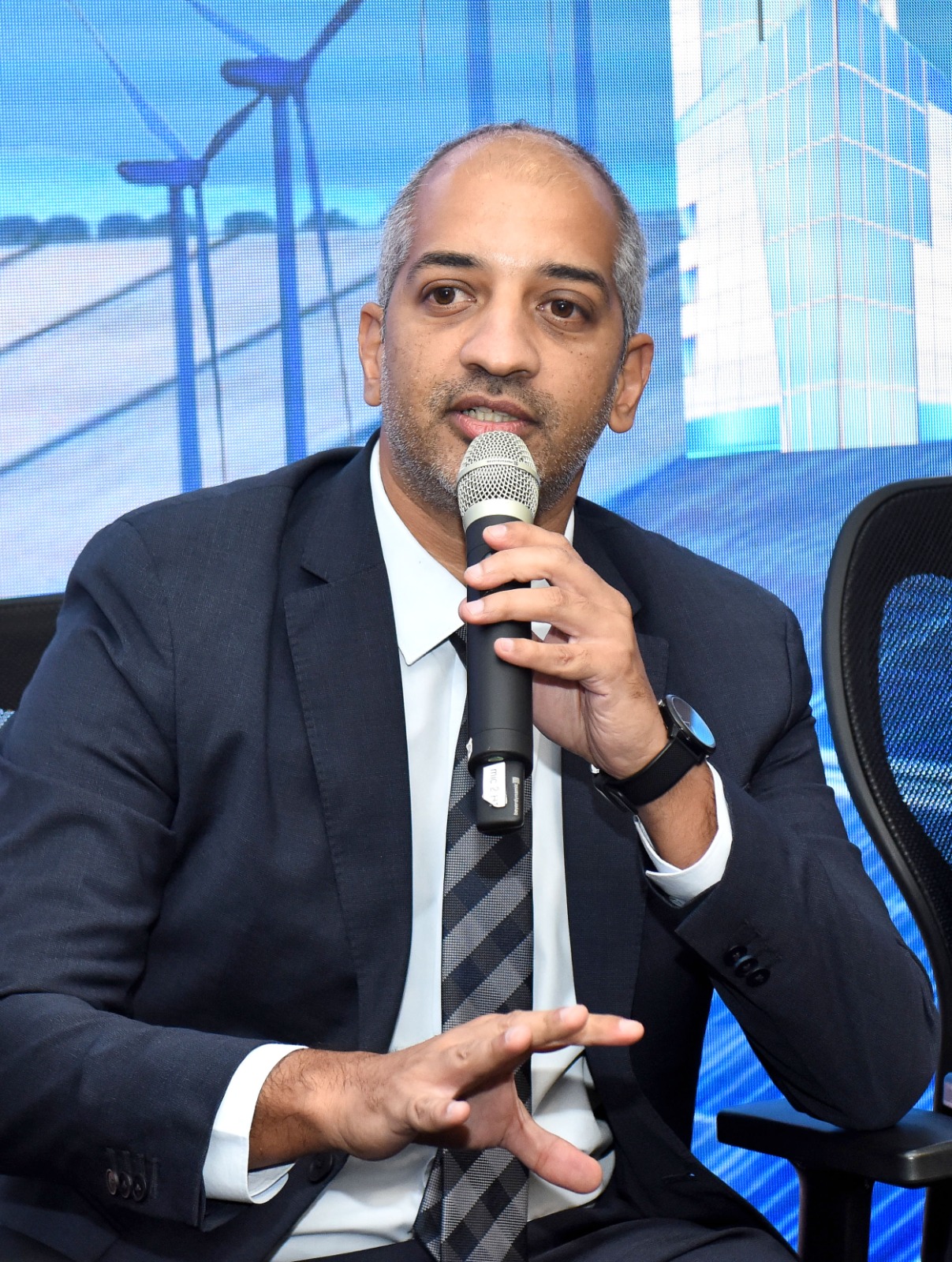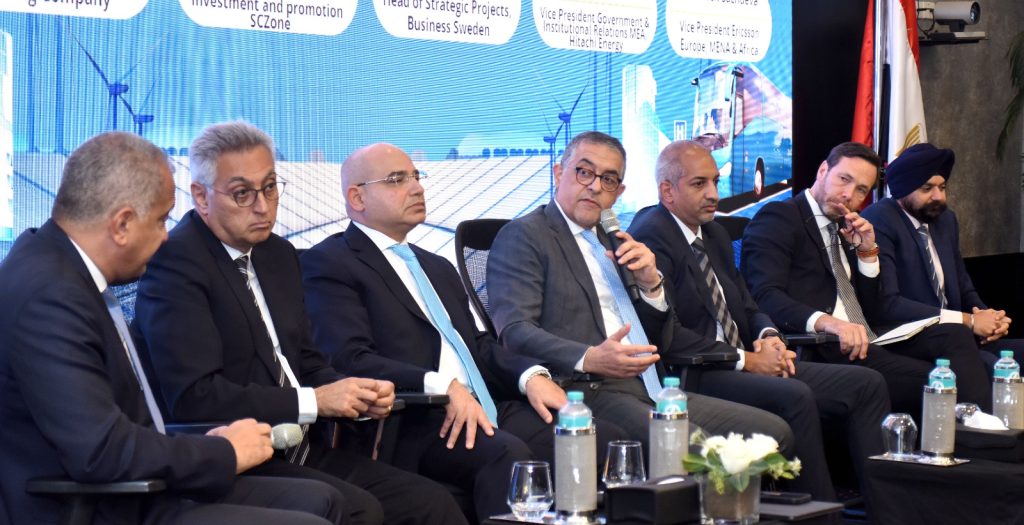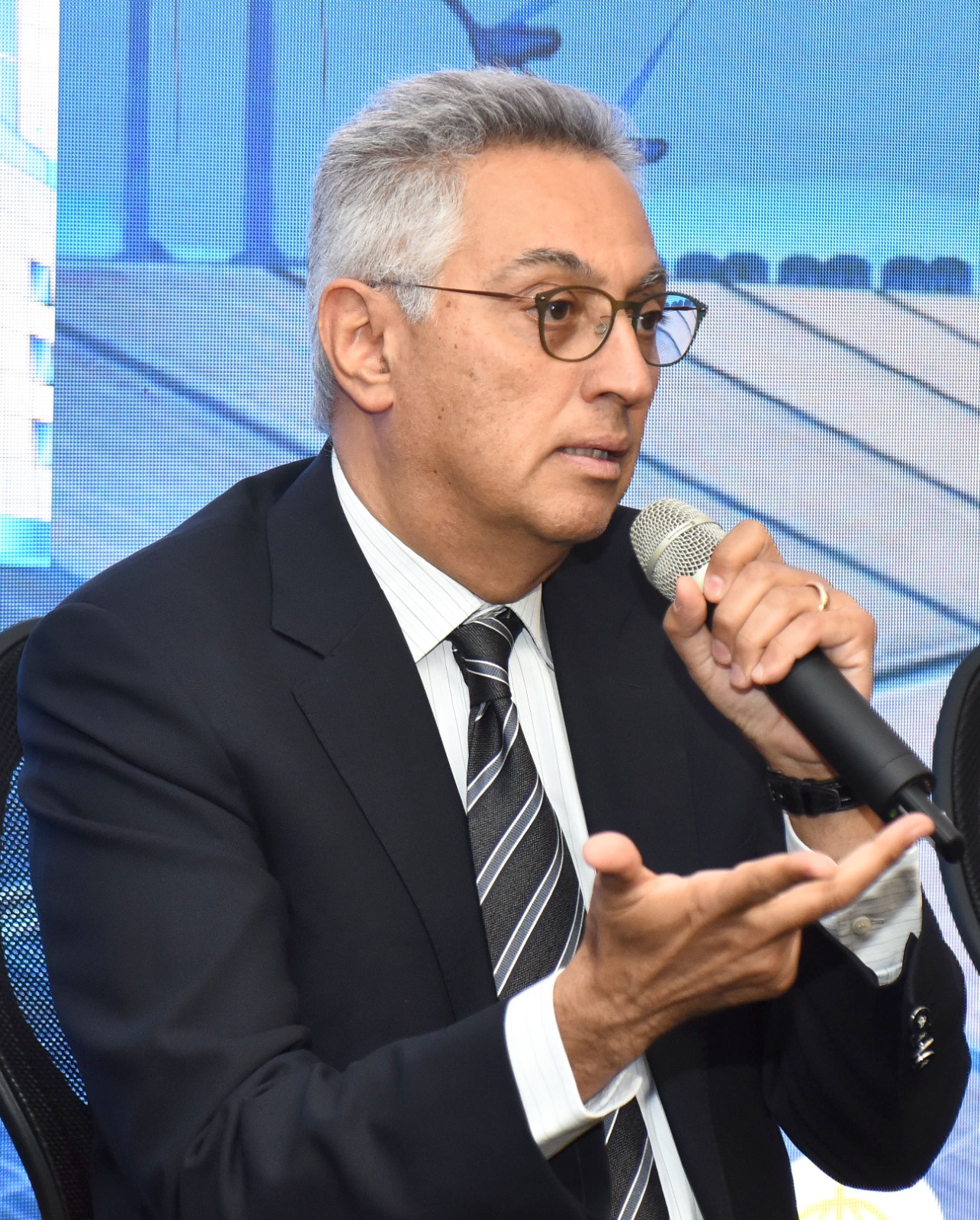The General Authority for Investment and Free Zones (GAFI) hosted the second Egyptian-Swedish Business Forum, with the participation of 23 Swedish companies. The event aimed to explore commercial and investment cooperation opportunities between the two countries and discuss the best mechanisms for financing joint projects.
Hossam Heiba, CEO of GAFI, stated that the Egyptian government has shifted from offering general incentives to focusing on sector-specific incentives aligned with the unique needs of each industry. He highlighted the launch of specialized strategies for key sectors such as automotive, engineering industries, IT, and renewable energy — areas in which Sweden has global expertise.
Mostafa Shekhoun, Deputy Chairman of the Suez Canal Economic Zone (SCZone), emphasized that the region’s infrastructure is well-equipped to attract Swedish industrial investments, particularly in shipbuilding and automotive sectors. He pointed out the authority’s efforts to connect factories with vocational schools and institutes to provide a skilled workforce tailored to project demands.
Patrik Johansson, Vice President of Ericsson for Europe, the Middle East, and North Africa, spoke of the company’s longstanding partnership with the Egyptian government, which spans over 125 years. He affirmed Ericsson’s commitment to advancing Egypt’s electricity and telecommunications sectors, especially in 5G technologies, which are key drivers of the fourth industrial revolution.
Johansson praised the competence of Egyptian talent, noting their central role in executing the company’s operations and development centers both locally and globally, thanks to their innovation and dedication.
Karim Sami Saad, Chairman of Samcrete Holding, emphasized that a well-trained workforce is the cornerstone of success in the automotive and related industries. He praised Egypt’s rapid progress in its strategy to become a regional hub for car manufacturing.
Olof Hemström, Head of Strategic Projects at Business Sweden, said the Swedish delegation includes major companies in pharmaceuticals, renewable energy, and automotive sectors, alongside startups seeking market entry in Egypt. He noted that the return on Swedish investments in Egypt is among the highest globally.
On the topic of investment financing, Sherine El Sharkawy, Senior Assistant to the Minister of Finance for Economic Affairs, highlighted that Egypt has a well-developed international bond market and has made significant progress in issuing green bonds to fund sustainable development plans. She invited Swedish companies to participate in these financing tools.
Maria Håkansson, CEO of Swedfund, revealed that her organization provides long-term financing to Egypt’s private sector in transportation, energy, and telecommunications. She affirmed that the coming phase will see new tools to support SMEs and enhance the business environment.
Lina Bertilsson, Head of Corporate Sector at the Swedish Export Credit Agency (EKN), noted that the AAA-rated agency offers low-cost financing for infrastructure, energy, and telecom projects. She confirmed the agency’s interest in expanding cooperation in fields like bus manufacturing, hospitals, and technology.
Alaa El-Zoheiry, Chairman of the Insurance Federation of Egypt, stated that the insurance sector in Egypt is witnessing rapid growth, with premiums reaching EGP 114 billion. He stressed that there are significant opportunities for Egyptian-Swedish cooperation, particularly in the underdeveloped agricultural insurance segment.

